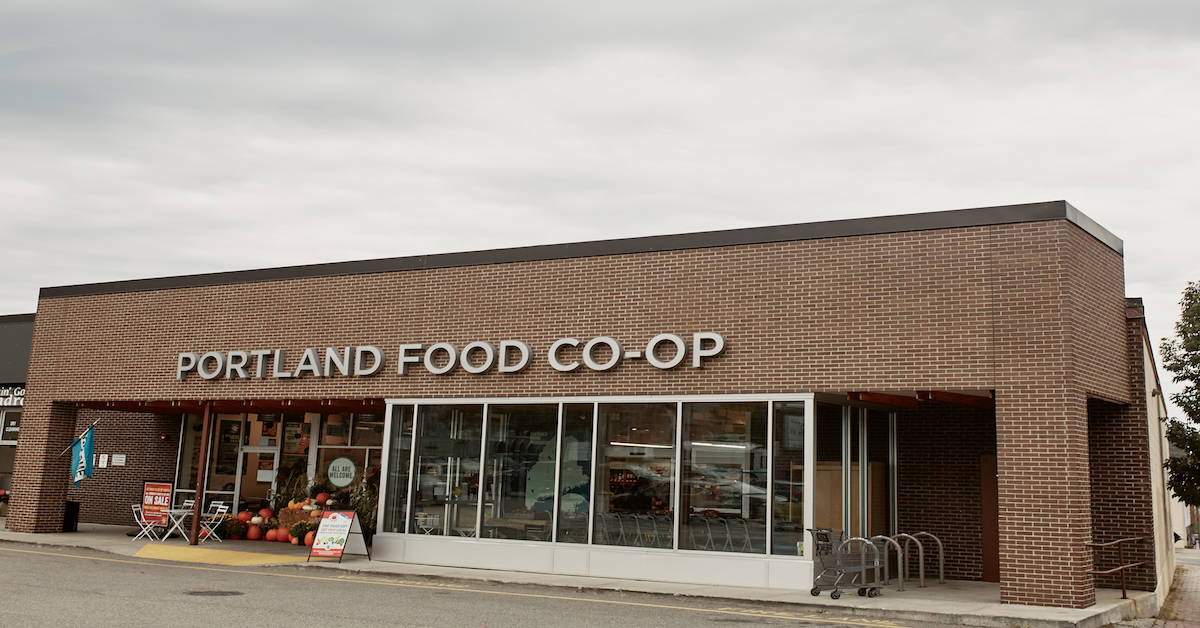What Is a Food Co-op? (And How It Works)

When you hear the word co-op, you may first think about that word in relation to housing. Co-ops, however, can encompass more than housing. Co-op stands for “cooperative” and applies to food as well as housing communities. Whether you have heard of food co-ops before or this is the first you have read about them, you have come to the right place to figure out what they are and how they work.
A food co-op is a grocery store that belongs to the people. It is owned by the people who shop there, making them the “cooperative.” The co-op members decide what food is put on the shelves, where it is sourced from, the standards for negotiating prices, and even how the employees are compensated.
Food co-ops can be beneficial for both the co-op members and the community surrounding them. It is also environmentally friendly and is a way that food can be provided while contributing to sustainability.
In this article, I’ll dive into what exactly a food co-op is, how it works, its benefits, and other details that go into the co-op itself.
How Does a Food Co-op Work?
Food co-ops, as a cooperative of people, run through membership. It is a group of people who come together to get their needs met by jointly owning an enterprise – in this case, a grocery store.
Members pay dues. This can be done in various ways: monthly, annually, or even a lifetime flat fee. Membership is open to anyone willing to accept the responsibility.
Other than location, food co-op membership does not have any other restrictions. In regards to location, you may need to be a resident of the state where the store is located to become a member.
Members buy shares of the co-op. They can buy a single share or more, depending on what the co-op allows. Everyone has the same voting rights, regardless of how many shares you own. One member = one vote.
Food co-op members establish relationships with local vendors, mom-and-pop shops, and producers to stock their grocery stores. This results in high-quality, local, organic food.
They may organize and execute community outreach and educational programs as well. Events such as cooking classes, food bank sponsorships, and healthy eating initiatives are all possible community outreach and education that a food co-op may partake in.
My food cooperative does not inflate prices. No one is paid to run it. We charge enough to cover bills to keep it open and in fact, almost times markup doesn’t even provide a profit if the product is already costly. Not all stores are alike.
— Yoli Ouiya (@yoliouiya) March 22, 2020
Are Food Co-ops Cheaper Than Grocery Stores?
Food co-ops can be more expensive than grocery stores because they are smaller than national chains and they have less buying power. In addition, food co-ops focus on high-quality, locally grown food, which always comes at a higher price tag.
More expensive does not mean that the food price is not fair for the quality of food you are getting. The quality of food could be less expensive than something organic at another local grocery store. But when it comes to competing with the behemoths such as Walmart, food co-op prices will typically be higher.
What Are the Benefits of a Food Co-op?
The benefits of a food co-op lie in the prices and the quality of food. Food co-ops typically aim to provide the community with higher-quality food for fair prices. This is for both producers and shoppers.
The effect of this is two-fold. First, money is kept in the community as the food co-op supports locals. Local breweries, growers, and other vendors benefit from the co-op’s business.
It also gives the shoppers high-quality, fresh, local foods to choose from. If anyone has specific diets (such as gluten-free or paleo), co-ops tend to provide options for those people.
Shopping at a food co-op reduces your grocery shopping carbon footprint. Getting food that is locally grown and delivered leads to less energy use for shipping and storage in a cycle.
Members of a food co-op can also enjoy other perks, such as membership discounts. If the store profits, you can get paid out dividends at the end of the year.
Monthly or annual patronage refunds may also exist at your co-op. In some cases, these perks could easily offset the membership fee.
For members, being part of a food co-op also allows you to be a part of a like-minded community. It is a way to get involved with the welfare of the community and surround yourself with people who care about sustainability, health, and the treatment of the people within.
Do You Need a Membership to Shop?
You do not need a membership to shop at a food co-op – both members and nonmembers can shop. The difference for members is that they have more of a say in how the food co-op is run. Being a food co-op member is a choice that involves dues.
If you decide to pay those dues and join, you get the perks that I mentioned before – decide the food, prices, and compensation for employees. You may also get a dividend at the end of the year if there is a profit.
@midcountiescoop #HappyBirthdayTMC I love the co-op food, better quality than others
— Emma J Lowe (@EmmaJLowe) September 24, 2015
Are Food Co-op Groceries Good Quality?
Food co-ops are known for having high-quality groceries. The members decide on the food that is stocked on the shelves, but they choose from local growers, mom-and-pop shops, and vendors.
They make sure that the food that is chosen is of good quality and organic. While some supermarkets, especially chains, may cut corners in the quality of the food they give you to get a lower price, a food co-op does not.
Whether you create residence cooperatives, off grid collectives, mutual aid garages, food cooperative warehouse/delivery, mutual aid ride shares, mutual aid medical programs, or even just feed those in need in a park once a week… that is where building a better world happens. https://t.co/li0o0oDOcB
— Francis Sullivan (@DaddyFrankD) February 8, 2021
Food Co-ops: Helping the Community and the World
If you find that your local grocery store is a food co-op, it might be worth considering becoming a part of it. There are many benefits to a food co-op, but the biggest ones involve the community and the world.
Not only are you helping out your community by supporting locals, but you also know that the food your community is eating is high quality as well. Plus, the co-op employees are treated well, something that, as a member, you ensure.
At a time when climate change and the effect humans have on this earth is more evident than ever, decreasing your carbon footprint is meaningful. Food co-ops help do that, and you are not sacrificing the quality of what you are putting in your body to do so.
There are some downsides to food co-ops, though. In addition to having possibly high pricing, the hours of the store may be more limited. You also likely won’t be able to buy items in bulk. The season could affect the availability of certain produce since you are relying on local vendors for supply.
However, there are many other benefits that can outweigh these negatives, and these are negatives that can easily be worked around. Even if you shop in a co-op and then go elsewhere for other needed goods, you still help both the environment and the community you live in.

